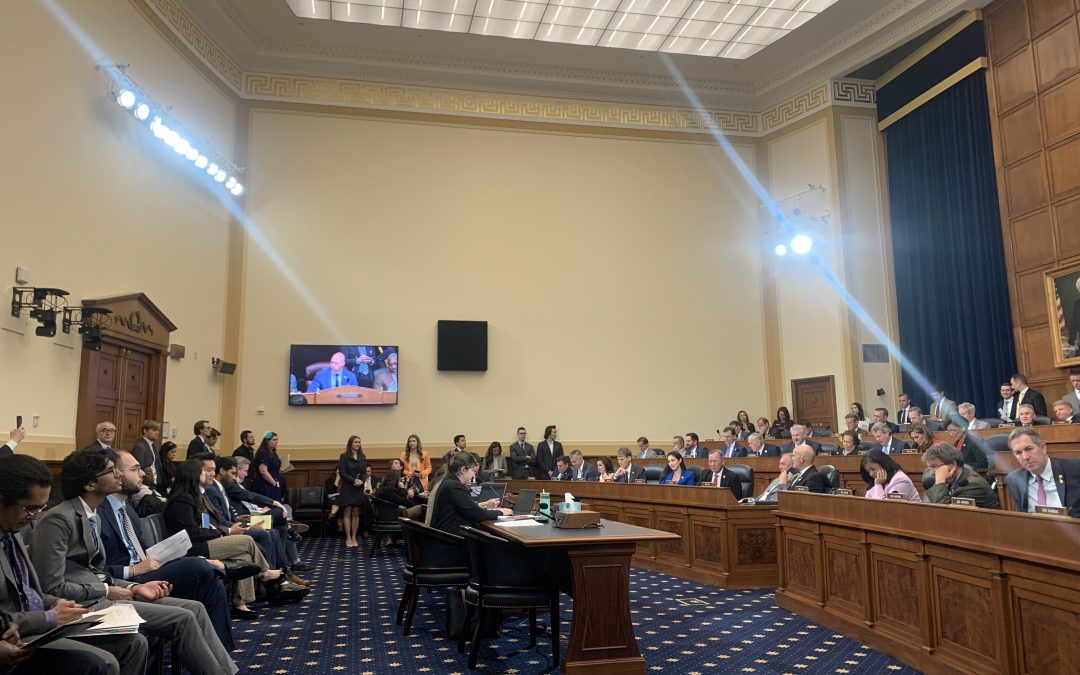WASHINGTON — The House Foreign Affairs Committee on Wednesday approved a bill that would impose additional sanctions on any individuals or companies participating in the illegal sale of Iranian oil.
Revenue from these sales fuel Tehran’s nuclear program and fund the Iran-backed Houthi rebels in Yemen attacking shipping lanes in the Red Sea.
The bipartisan Enhanced Iran Sanctions Act passed on a voice vote and was expected to easily clear the full House.
Tensions have steadily increased over Iran’s nuclear program since President Donald Trump took office. The president announced on Monday Washington would engage in direct negotiations with Iran for the first time since 2015 starting Saturday over its nuclear plans.
On March 30, Trump threatened to bomb Iran “the likes of which they have never seen before” and impose additional sanctions if it did not reach a nuclear deal.
The Foreign Affairs Committee chairman told Medill News Service that he would support military action by the Trump administration.
“Should the administration decide the next logical step is a kinetic attack on their nuclear infrastructure, absolutely I support that,” said Brian Mast, R-Fla. “An Iran nuclear weapon for one minute or two is not a reality for this world.”
The Enhanced Iran Sanctions Act enacts new secondary sanctions on individuals and companies who circumvent sanctions and participate in the illegal sale of oil, liquefied natural gas and petrochemical products coming from Iran. Tehran has successfully circumvented sanctions by selling its oil to China.
“China buys up probably 99.9% of Iranian oil, but China is also our adversary, and it’s important to certainly make known what is going to be the policy,” Mast said.
The bill also would establish an Interagency Working Group on Iranian Sanctions at the State Department, require the State Department to cooperate with like-minded nations to impose these sanctions and allow the government to revoke any visas or prevent any issuance of visas for persons involved in these activities.
“Iran’s continued exploitation of weak spots in the global sanctions framework is a direct threat to global stability, and we can no longer stand by while Tehran collects more money to fund terror in the Middle East,” Rep. Mike Lawler, R-N.Y., said in a statement.
Lawler chairs the House Foreign Affairs Subcommittee on Middle East and North Africa and introduced the bill with Sheila Cherfilus-McCormick, D-Fla., the top-ranking Democrat.
Iran-backed Houthi rebels have been targeting Israeli vessels in one of the biggest international shipping lanes in the world to protest Israel’s war on Gaza. The Houthis have launched over 100 attacks since November 2023. No U.S. vessel has been hit.
Since March 15, Trump has overseen an intense bombing campaign of almost 200 strikes against the Houthis to reestablish freedom of navigation in the Red Sea. At least 69 people were killed in Yemen as a result of U.S. airstrikes, according to the rebel group.
This bill strengthens the president’s National Security Presidential Memorandum, which reinstated “maximum pressure” on Iran on Feb. 4.
The memorandum states, “Iran should be denied nuclear weapons and intercontinental ballistic missiles and Iran’s terrorist network should be neutralized.” On Feb. 6, the Treasury Department sanctioned more than a dozen entities involved in shipping Iranian oil to China.
“This bipartisan legislation will tighten sanctions on Iranian oil-a crucial source of revenue for the regime-enhancing the security of the United States and our regional allies, including Israel,” said Rep. Cherfilus-McCormick, D-Fla.
In 2018, Trump demonstrated his hard stance with Iran by withdrawing the United States from the Joint Comprehensive Plan of Action, a deal between Iran, France, Germany, the United Kingdom, Russia and China, which negotiated the removal of economic sanctions on Iran in exchange for Iran discontinuing its nuclear program.
Iran has continuously breached this agreement and resumed its uranium enrichment program to build its nuclear arsenal, observers said.
The bill has strong bipartisan support, with 80 Democratic and 101 Republican co-sponsors.
“I think it’s recognized on both sides the threat that Iran poses for decades, what they’ve done to Americans in our theaters of combat, what they’ve done to our allies with their arms of terrorism from Hamas to the Houthis to Hezbollah,” Mast said.

